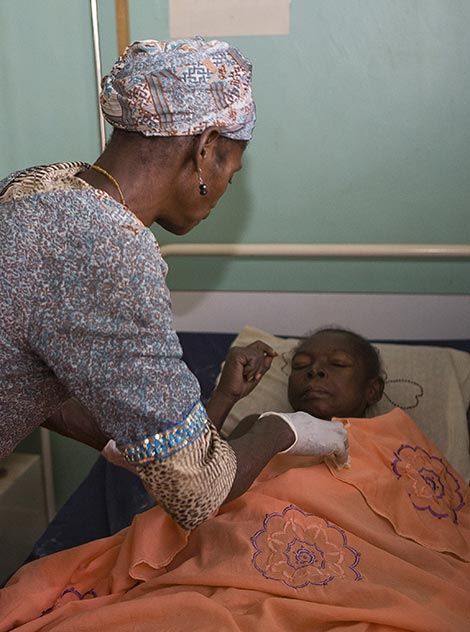The Covid-19 pandemic provided yet another opportunity to highlight the profound inequality between rich and poor countries when it comes to health information, care and treatment. Fondation de France and several of its donor-advised funds support targeted projects in the most deprived parts of the world, to reduce this inequality.
As part of its healthcare programs outside mainland France, Fondation de France has chosen to address the fight against HIV in particular. More than 38 million people in the world live with HIV, two thirds of whom live in Sub-Saharan Africa. In France, some of its overseas territories in Mayotte, the French West Indies and French Guiana are experiencing alarming situations. With its AIDS, Healthcare and Development program, Fondation de France focuses on gender equality and takes into account all gender identities to combat this disease, through prevention and care.
Prejudice accelerates epidemics
Gender inequality remains an accelerating factor of this epidemic. All too often, issues relating to contraception, screening, disclosing a serological status, following treatment and so on are still perceived as “women’s business.” In addition, heteronormativity still leads to the rejection of other sexual practices and identities (homosexual, bisexual, transgender), which further discourages the people concerned from engaging in prevention and accessing care. These factors feed into gender inequality and ultimately to the further spread of HIV/AIDS.
The Covid-19-related pandemic, especially lockdown, has increased this inequality. Now more than ever, this program responds to the health emergency by promoting the following:
- prevention of risky behavior in young people: information, access to contraception as well as talking about sexuality and consent;
- prevention of gender-based violence and care for victims;
- reinforced autonomy for women and a better understanding of their rights;
- men becoming more involved in the fight against AIDS, taking responsibility, getting screened and accessing care;
- reinforcing nonprofits’ capacity to take into account gender inequality and its impact on the epidemic.
Since 2006, more than 280 projects were funded with a total of 9 million euros.
Managing the effects of post-traumatic stress
Post-traumatic stress disorder in areas affected by severe crises (natural and industrial catastrophes, wars, etc.) is another major international health issue. Fondation de France steps up to address emergencies but it always gives priority to long-term reconstruction. This involves housing and economic activity, but it also involves people, especially young people, who often suffer from the effects of the trauma for a long time. Catastrophe response programs therefore always incorporate a mental health element. This can be educational and cultural activities to identify the children and young people most affected, help for parents in recognizing their children’s symptoms, psychological counseling, and support for nonprofit staff dealing with emergencies in the front line.
In the French West Indies, following the hurricanes that devastated Saint Martin and Saint Barthelemy, Fondation de France organized awareness raising and training programs on psycho-traumatic disorders, with the help of volunteer experts. In Lebanon, it supports among other projects a psychological counseling and support hotline, led by the nonprofit Embrace.
In addition, several Fondation de France donor-advised funds work in healthcare, especially for women, mothers and children (Fondation Maternité sans risque – a foundation for risk-free childbirth, Fondation Salins and Fondation Médecins du Monde) as well as training in humanitarian and emergency medicine (Fondation Alima for example).



